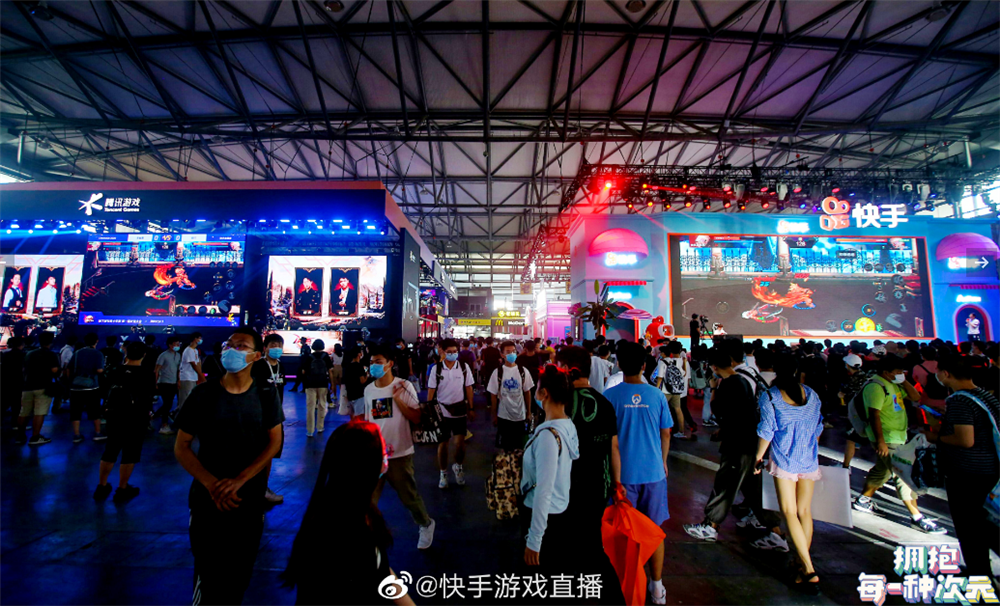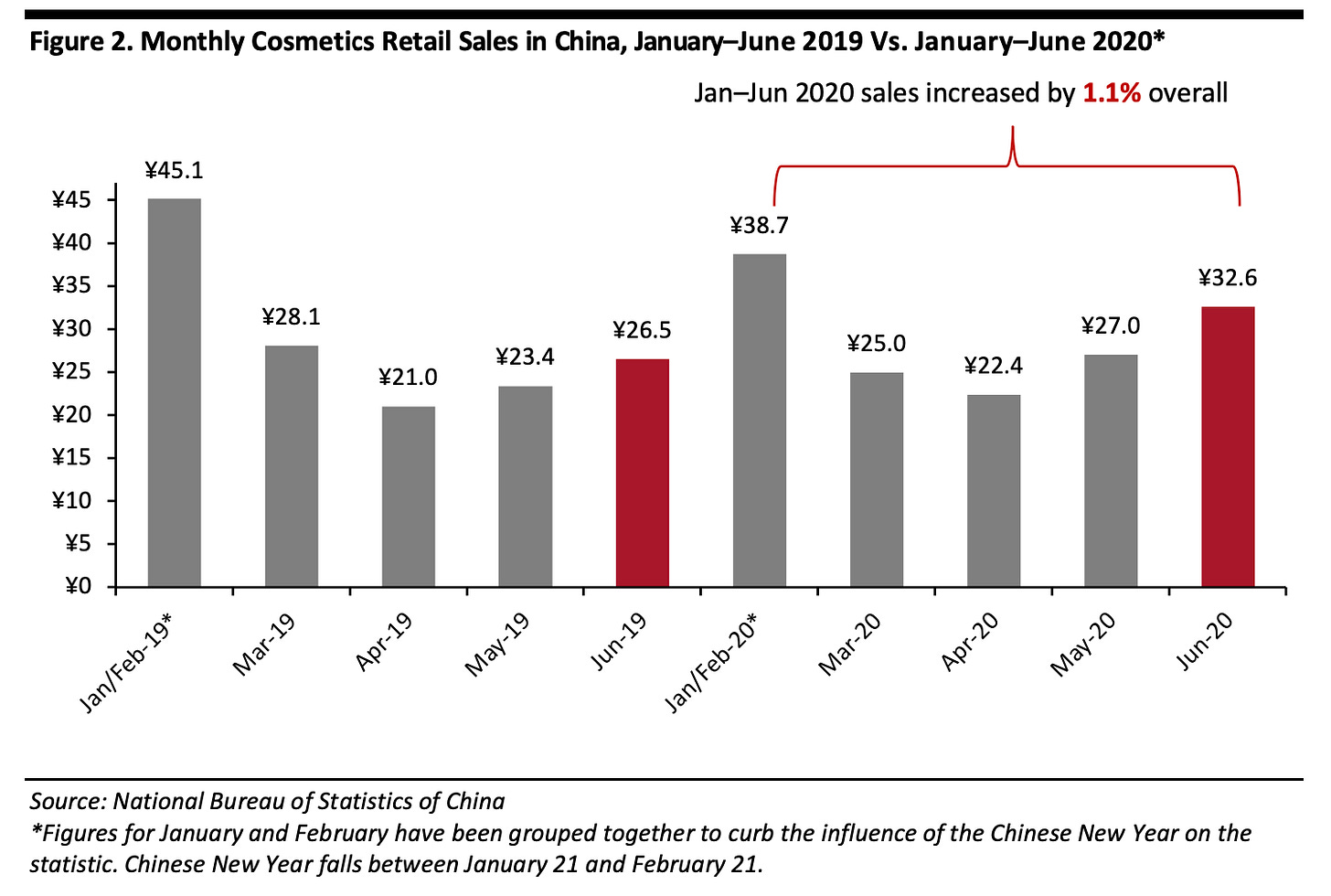How the Fashion VIP of Brand Sponsors Mastered Content-Commerce in China
Plus: Big events back on, the CCI Report Corner, and is livestreaming here to stay?

Some of the most-buzzed-about shows of the summer have been centered around women, starting with Mango TV’s 30-and-over idol competition “Sisters Who Make Waves” (乘风破浪的姐姐), and followed by two dramas: Dragon TV’s “Nothing But Thirty” (三十而已, also streaming on Tencent Video) and Hunan Satellite TV’s “Twenty Your Life On” (二十不惑, also available on iQiyi).
What these three shows also have in common — apart from the female-focused perspectives — is the sponsorship support of fashion e-commerce platform Vipshop (the title sponsor for “Twenty Your Life On” and a supporting sponsor for the other two.)
Founded in 2008, the discount-oriented Vipshop (NYSE: VIPS) has been at the forefront of brand integration in popular television and video streaming content in recent years, starting with its sponsorship of Hunan Satellite TV’s “First Grade” (一年级) in 2014.
Since then, it has placed its brand into just about any type of programming that might appeal to its core user base of female consumers. Among other shows it has been involved with in 2020 are the celebrity women’s reality shows “My Little One” (我家那闺女) and “Viva La Romance”(妻子的浪漫旅行3), along with romance dramas “If Time Flows Back”(如果岁月可回头) and “Love Designer” (幸福,触手可及!) — the latter starring Dilireba, a fashion icon and much sought-after brand ambassador.
Vipshop has been open to using various methods to place its brand on reality shows and drama series. Most often, characters are seen receiving deliveries from Vipshop or mentioning how they purchased a certain item through the platform. Reality shows typically feature more obvious product placement through background signage, logos on decorative pillows, or on-screen graphics.
In some of its more creative efforts, Vipshop has placed its brand on costume dramas such as “Novoland: Eagle Flag” (九州缥缈录), “Good Bye, My Princess” (东宫) and “Princess Silver” (白发) by creating traditional-looking shops in the series under the fictional name “VIP Pavilion.” It will also film commercials with the stars of the dramas it sponsors staying in character to promote Vipshop, as seen with last year’s hit “All Is Well” (都挺好), in which the character played by actress Yao Chen launched a trend for power suits.
Although the company reduced its marketing budget due to the coronavirus pandemic during the first quarter of 2020, as it decided to temporarily halt spending to acquire new customers, the number of active users in the first quarter of 2020 (29.6 million) was nearly the same as in the same period a year earlier. And while China’s overall sales of clothing saw a steep decline during the first quarter of 34.8%, Vipshop’s decrease was a more modest 14.5%, and total orders were up by 4% year-on-year.
The platform’s ability to weather the coronavirus epidemic has been buoyed by the fact that consumers have been spending more time at home watching shows, and the influence of female celebrities and the styles they wear on-screen has been leveraged by Vipshop’s reminders that consumers can replicate the looks by searching for relevant keywords on its app, simplifying the process to boost sales.
- by Ginger Ooi, CCI Team
Thank you to all of the readers who have downloaded our collaborative white paper with Jing Daily and sent positive feedback. We appreciate you subscribing and for your support. If you have any reactions, ideas for future guides, or are interested in sponsoring a report, don’t hesitate to reach out. We would love to hear from you.
Mentioned in today’s newsletter: Vipshop, Mango TV, Dragon TV, Hunan Satellite TV, Tencent, JD.com, Bilibili, Kuaishou, Douyin, Hua Xizi, QQ Music.

Executives from many of the world’s top luxury and retail brands have downloaded “Next-Level Livestreaming.” Get your copy today for in-depth case studies, best practices, and market analysis that applies to luxury brands as well as any company considering livestreaming as a part of their marketing strategy.
Takeaways From ChinaJoy Gaming Expo and Taobao Maker Festival

Big events may be off the calendars in much of the world, but that’s not the case in China, which is seeing film festivals, fashion shows, and other large-scale gatherings taking place as the coronavirus remains under control.
China’s biggest gaming convention, ChinaJoy (aka the China Digital Entertainment Expo & Conference) proceeded as scheduled from July 31 to August 31 in Shanghai. Around 400 companies participated as exhibitors, including major content-commerce players such as Tencent, JD.com, Bilibili, Kuaishou, and Douyin. While ChinaJoy content has typically been the province of platforms targeting ACG (Anime, Comic and Games) enthusiasts, such as Bilibili and AcFun (now owned by Kuaishou), this year has seen more competition to bring the event to wider audiences online, even as the in-person event proceeded on a smaller scale this year.
E-commerce retailer JD.com offered a virtual version of the event for its premium JD Plus members, allowing them to view exhibitor livestreams, press conferences, product demos, and more, and also offering chances to win free tickets to the in-person expo.
Douyin launched a “Summer Comic Convention Tour” to bring livestreamed content from several major expos across the country, including ChinaJoy, with 11 popular creators and cosplayers sharing their experiences at the event.
The Tencent-backed Kuaishou leveraged its ownership of AcFun, one of the original ACG platforms (it was launched in 2007), to introduce more trendy content that can appeal to fans of the genre, such as the release of a new single by popular AcFun virtual idol AC Niang, and the launch of a promotional video featuring Kuaishou stars involved in varied fields such as esports, dance, music, and beauty.
Altogether, the virtual “cloud” expo events on various platforms reached an estimated 600 million viewers, and China’s game market has seen explosive growth this year thanks to increased demand for entertainment at home as a result of the coronavirus. In the first half of the year, domestic gaming revenues increased by more than 30% year-on-year, to RMB 120.1 billion ($17.3 billion).

Meanwhile, Alibaba’s fifth annual celebration of creativity, the Taobao Maker Festival, is in full swing, with the 2020 edition expanding both online and offline. Enhanced digital features of this year’s event include short videos and livestream sessions, and interactive virtual experiences through the Taobao app, through which users can customize avatars to explore offerings from more than 150 featured brands across six “kingdoms” of technology, fashion, anime and games, food, cultural heritage, and inventions and “curiosities.”
Offline, the event is taking to the road for the first time with a month-long tour that will see a double-decker festival truck traveling to Xi’an, Chengdu, and Wuhan, in addition to Alibaba’s home base of Hangzhou.
The Taobao Maker Festival also released a list of six major creative trends for 2020 that are relevant for brands. These include robots and other forms of human-machine integration, the rise of niche subcultures, the “cute” pet economy, the localization of “national trend” (国潮, guochao) styles, internet-famous food culture, and traditional hanfu (汉服) fashions.
CCI Take: Does the Livestreaming Trend Have Legs for Global Brands?

Livestreaming e-commerce has swept through China in recent years, expanding rapidly since early adopters like Taobao Live and Mogu made pioneering moves to fuse livestreaming and e-commerce in 2016. The gross merchandise volume of livestreaming e-commerce exploded from RMB 20 billion ($2.8 billion) in 2017 to RMB 430 billion ($61 billion) in 2019, and is projected to more than double this year. As of 2019, livestreaming e-commerce already represented almost 9% of all online sales, or 1% of total spending on consumer goods.
With brands struggling to drive revenue this year due to the ongoing coronavirus pandemic — which kept millions of Chinese consumers indoors for much of the first half of the year and is now sweeping through crucial consumer markets like the United States — livestreaming has provided a much-needed lifeline to reach and influence consumers.
More innovative brands are already using livestreaming in unique ways that work extremely well in the China market. Premium Japanese skincare and cosmetics brand Shiseido, for example, turned to livestreaming for a product launch on the popular platform Bilibili in May, which eschewed the typical “host-talking-about-products” format and took the form of an entertaining variety show with a number of celebrity guests.
Read the full article on Content Commerce Insider
Brand Film Pick: C-Beauty Brand Hua Xizi’s Hit Theme Song
For a brand that was launched just three years ago, C-beauty label Hua Xizi (花西子, also known as Florasis) has seen astonishingly rapid growth. During Tmall’s 618 sales event in June, Hua Xizi sold more than 190 million products, ranking first among all makeup brands. Central to the brand’s appeal has been its simultaneous embodiment of traditional values and promotion of popular culture.
On June 29, Hua Xizi released a song with the same name as the brand, a collaboration with singer Zhou Shen and lyricist Vincent Fang, which reached the top of the charts on QQ Music. In the accompanying music video, Hua Xizi is personified as a physician, a role played by actress and model Du Juan. Hua Xizi picks flowers and herbs on the banks of the West Lake use in her cosmetic creations. While interpreting the story of Hua Xizi for us, Fang’s lyrics use delicate language imbued with natural imagery and classically-inspired rhymes to fit every frame. To complete the cultural journey, Zhou Shen's renowned voice is complemented by traditional Chinese instruments.
In recent years, China has witnessed a surge in young consumers’ interest in domestic brands and products that exhibit distinct traits drawing from the country’s cultural heritage. Hua Xizi was established with the goal of becoming a leading cosmetics brand, in terms of both market share and cultural significance. Following Chinese traditions, Hua Xizi makeup uses natural flower and herbal essences in its products, and has created lipstick tubs and makeup palettes embossed with designs drawn from historic carvings and reliefs. Even the brand’s packaging and its online store show its roots in Chinese culture. The "Hua Xizi" music video further communicates the brand’s commitment to traditional values through language, music, and imagery — a combination that helps the brand stand out from the competition.
The campaign fits into a broader trend of using music videos as the medium of choice for marketing in China. In recent months, numerous brands have engaged Chinese consumers with songs by popular bands and singers: Ikea with New Pants and “Don’t Ask Me Why I’m Growing” (别再问我为什么长大), Bilibili and Mao Buyi’s “Enter the Sea” (入海), Kiehl’s “I Am Not Afraid” (没在怕的) with Hedgehog, and OnePlus’s “Pupil: Extraordinary”( 瞳,出类拔萃),” also featuring Zhou Shen, are among the notable examples.
Going beyond the concept of advertising jingles with content that can be appreciated on its own merits, brands working with well-known artists can also leverage their substantial fan bases to enhance brand recognition. While the commercial attributes of music videos are more subtle than traditional ads, viewers still associate brands with the values they promote, and in Hua Xizi’s case, the connection is closer thanks to the shared name, turning the tune into a “theme song” for the brand — one that has been appreciated by audiences.
- by Benjamin Guggenheim, CCI Team
Report Corner

E-commerce livestreaming, shopping festivals, and smart technologies are among the marketing innovations driving beauty sales in China, according to a report released by Coresight Research and CEW.
China’s advertising market is projected to shrink by 2.8% for 2020, compared to 11.8% globally, according to a forecast from GroupM, but digital channels are expected to see sustained growth of 20% in e-commerce and 15% in social media.
Entdata has published a research report on the commercial value of the Mango TV’s hit reality show “Sisters Who Make Waves,” including an analysis of the top performers among the series’ 21 brand sponsors.
News in English
Just weeks after Disney said it would postpone the release of its live-action “Mulan” “indefinitely,” the studio announced that it will go straight to (paid) streaming on September in markets where Disney+ is available (such as the United States) but would get a theatrical release in other places where cinemas are open — and that means China. SCMP
Meanwhile, Chinese film studios are back to work making movies and drama series, with the number of crews at the biggest production site up 16% year-on-year in July. Global Times
In Tencent’s latest move to become a bigger e-commerce livestreaming player, the tech giant reportedly plans to link its group-buying platform Xiao’e Pinpin to short-video streaming on Tencent Video. S&P Global Market Intelligence
Wine brands have been boosting their online sales channels in China, deploying innovative strategies such as livestreamed tastings that viewers can enjoy at home. Straits Times
Emerging as “the most resilient player in luxury” during the coronavirus, Hermès saw its e-commerce sales in China increase by 100% in the first half of 2020, with roughly 75% of online purchases coming from new customers. The Fashion Law
A deal by Microsoft to purchase TikTok’s U.S. operations from Bytedance could ultimately bring draw more brands onto the short video platform. Glossy
As NBA play resumes in the U.S., fans and brands in China are ready to get back in the game after a long hiatus fueled by political controversy pre-dating the coronavirus. SportsPro
Tencent is moving to consolidate its gaming industry dominance by merging Huya and Douyu, China’s two biggest game livestreaming platforms. Reuters
Apple removed more than 30,000 apps — 90% of them games — from its App Store in China as part of a major government-led crackdown on unlicensed content. Bloomberg
We’ve Got China Covered
China Film Insider: Liu Cixin’s Science-fiction Novel ‘The Three-Body Problem’ Will Be Adapted Into a Live-Action TV Series
Jing Daily: Can Meituan Go From Delivering Groceries to Delivering Luxury Products?
Jing Travel: This Beijing Museum Is Tapping Millenials With Cultural Podcasts
Thank you for reading and subscribing. If you’d like to say hello, have a question or story tip, or are interested in report sponsorship, drop us a line!


